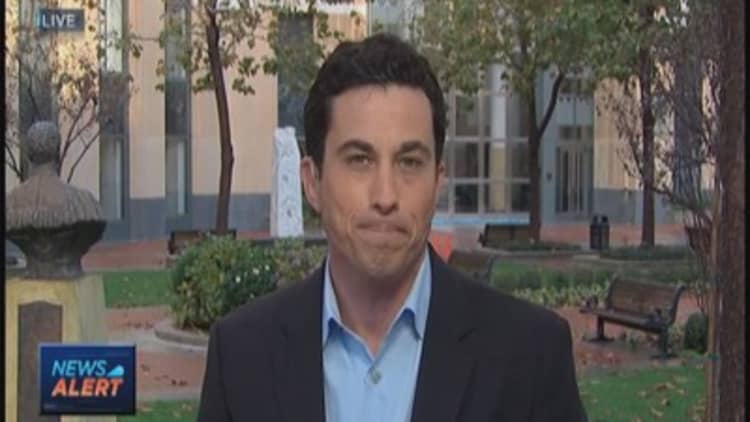A long running class-action antitrust lawsuit against Apple hangs in the balance after attorneys for the tech titan were able to prove that a class representative's previously undisclosed iPod touch was purchased three months after the class period for the case had ended.
On Thursday, after the jury was dismissed for the day following testimony by some of Apple's highest ranking executives, U.S. District Judge Yvonne Gonzalez Rogers addressed an issue raised by Apple's attorneys that left her "concerned" that the decade-long case may not have any plaintiffs. The issue? Apple's lawyers were able to prove that one of the class representatives in the case didn't purchase her iPod during the class period that runs from September 2006 to March 2009.
Read MoreApple executives to take stand in antitrust trial
The plaintiffs only have two class representatives: Marianna Rosen and Melanie Tucker. Ms. Rosen took the stand on Wednesday and produced for the first time an iPod touch that she stated was purchased in December 2008. Following her testimony, Apple's attorneys were granted access to Ms. Rosen's iPod in order to identify the serial number, which then could be used to verify the exact date of purchase. Apple's attorneys discovered that the plaintiff's iPod touch was actually purchased on July 10, 2009, more than three months after the class period for the case ended.

In a letter to Gonzalez Rogers filed late Wednesday, Apple's lawyers also called into question the validity of Tucker's claims and have requested further proof from the plaintiffs of her iPod purchase date.
So what options would the judge have if in fact both plaintiffs are proven to not be class members? According to a San Francisco-based antitrust attorney who reviewed the case, a few things could happen: dismissal, substitution of new named plaintiffs, or expansion of the class. However, he believes "there is strong legal authority for the proposition that if Apple can show that neither plaintiff is actually a member of the class and never has been, the case should be dismissed."
Read MoreHere's why Apple shares took a dive: Pros
Gonzalez Rogers urged defense attorneys to bring a motion in a timely manner if they did in fact plan to file to have the case dismissed, so that she could do the "independent research on if it is a good motion" and "figure out what the options are if" there aren't any plaintiffs.
Lawyers for a class of iPod consumers and resellers argue that after an iPod upgrade in 2006, music from competitors no longer played on Apple devices, illegally shutting out rivals from the MP3 market. In doing so, the plaintiffs contend, Apple harmed consumers because they were "locked" into Apple's products.
Approximately 8 million people who purchased iPods between 2006 and 2009 could be considered part of the class if antitrust violations against Apple were proven. Plaintiffs are seeking $350 million, but damages could total $1 billion. That is less than 1 percent of the tech giant's $155 billion cash hoard that Apple reported in its most recent quarterly earnings report.
Read MoreHere's what could end Apple's winning streak
The case is Apple iPod iTunes Antitrust Litigation, 4:05-cv-00037-YGR.
Correction: This version corrected the spelling of Gonzalez.


